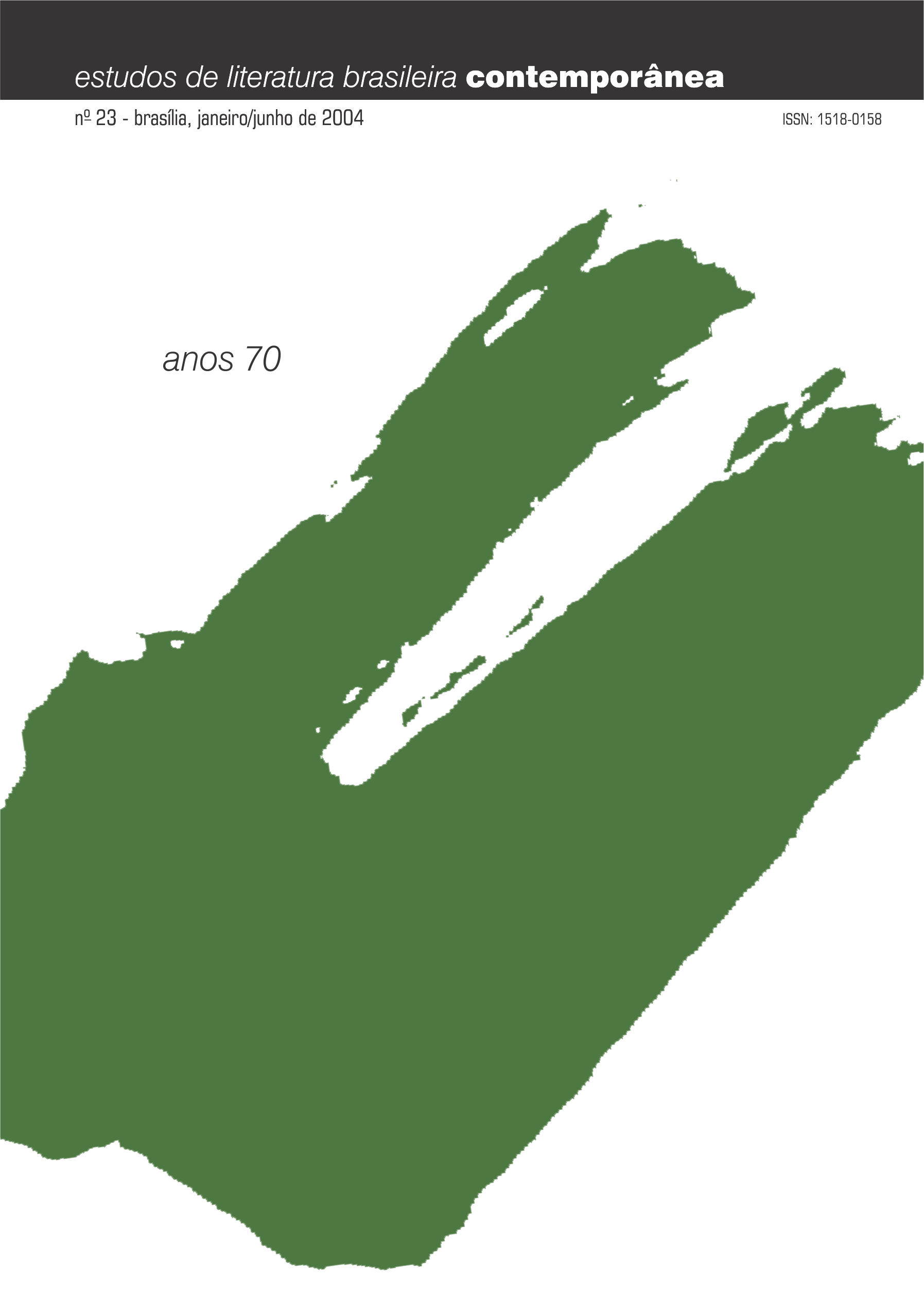Encontros de escritores brasileiros nos finais da década de 1970:
um mecanismo de institucionalização e de mercado
Abstract
Analisamos estratégias de determinados agentes do sistema literário brasileiro de finais dos anos 70, cujo objetivo era estabelecer vias de profissionalização do ofício de escritor e a consolidação do mercado.
Downloads
References
BOURDIEU, Pierre. As regras da arte: gênese e estrutura do campo literário. Trad. Miguel Serras Pereira. Lisboa: Presença, 1996.
CHINEM, Rivaldo. Imprensa alternativa: jornalismo de oposição e inovação. São Paulo: Ática, 1995.
EVEN-ZOHAR, Itamar. “Polysystem theory”, Poetics Today, vol. 1, nº 11, 1991, pp. 9-72.
HOHLFELDT, Antônio. “Dois anos de Projeto Cultur”. Cultura Contemporânea, nº 6. Porto Alegre, 1977.
PELLEGRINI, Tânia. Gavetas vazias: ficção e política nos anos 70. São Carlos: Editora da UFSCar, 1996.
SANTIAGO, Silviano. Vale quanto pesa: ensaios sobre questões político-culturais. Rio de Janeiro: Paz e Terra, 1982.
SILVERMAN, Malcolm. Moderna ficção brasileira. Trad. Richard Goodwin. Rio de Janeiro: Nova Fronteira, 1981.
SILVERMAN, Malcolm. Protesto e o novo romance brasileiro. Trad. Carlos Araújo. Porto Alegre: Ed. Universidade-UFRGS/São Carlos: Ed. Universidade de São Carlos, 1995.
VILLARINO PARDO, M. Carmen. Aproximação à obra de Nélida Piñon. A República dos Sonhos. Tese de Doutoramento em CD-Rom. Santiago de Compostela: Universidade de Santiago de Compostela, 2000.
Downloads
Published
How to Cite
Issue
Section
License
Authors who publish in this journal agree to the following terms:
a) The authors maintain the copyright and grant the journal the right of first publication, the work being simultaneously licensed under the Creative Commons Attribution License-Non Commercial 4.0 which allows the sharing of the work with acknowledgment of the authorship of the work and publication this journal.
b) Authors are authorized to enter into additional contracts separately, for non-exclusive distribution of the version of the work published in this journal (eg publish in institutional repository or as a book chapter), with authorship recognition and publication in this journal.
c) Authors are allowed and encouraged to publish and distribute their work online (eg in institutional repositories or on their personal page) after the editorial process, as this can generate productive changes, as well as increase the impact and citation of published work (See The Effect of Free Access).
d) The authors of the approved works authorize the magazine to, after publication, transfer its content for reproduction in content crawlers, virtual libraries and the like.
e) The authors assume that the texts submitted to the publication are of their original creation, being fully responsible for their content in the event of possible opposition by third parties.


